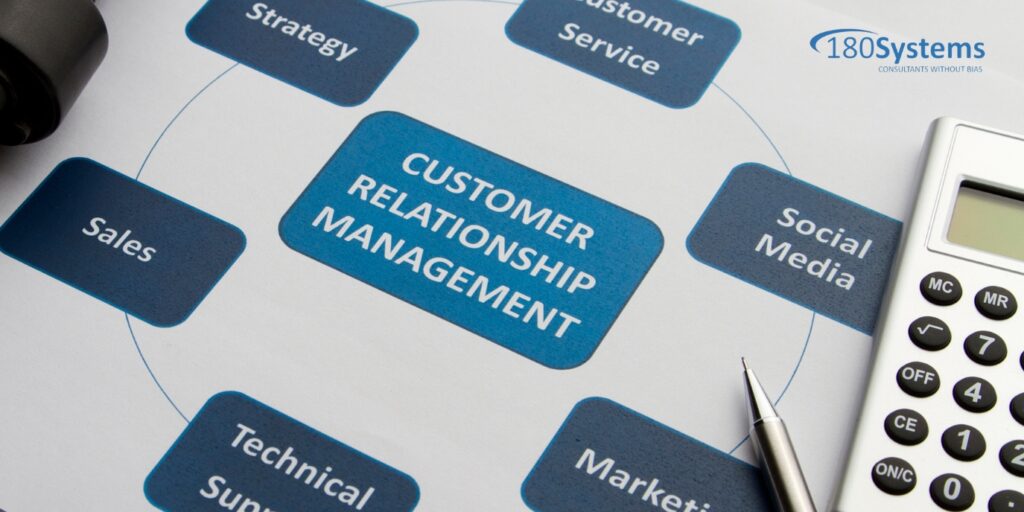What is Customer Relationship Management (CRM)?
Customer Relationship Management (CRM) is a comprehensive approach to managing a company’s interactions and relationships with current and potential customers. It involves the use of systems and software designed to organize, automate, and synchronize sales, marketing, customer service, and technical support. At its core, CRM software helps businesses understand their customers better, improve communication, and drive growth.
CRM systems and software are essential tools for businesses aiming to streamline interactions with customers, improve sales, and enhance customer service. Implementing a CRM system involves several steps, including selecting the right software, planning the implementation process, and training staff. An effective implementation plan should consider the unique needs of the business and ensure that the system integrates well with existing processes and technologies. The goal is to achieve a successful systems implementation that enhances overall business performance.
CRM Comparison
In this comprehensive CRM comparison, we delve into key trends, unique features of top providers, and the competitive landscape of CRM solutions to help you choose the best system for your business.
1. The Survey
The survey contains hundreds of questions about target customers, cost and features. The results are available by clicking here. You can also complete an online survey about your requirements, then view the 10 best systems for your needs based on percentage fit calculations here. As with all our surveys, we were unable to validate the information supplied to us by the vendors. However, we don’t think there will be that many intentional mistakes, partly because the vendors will lose credibility if they are caught making false claims.
2. CRM Trends
We contacted Salesforce and Microsoft to get their perspective on CRM system and software trends for ease of comparing CRM. Not surprisingly, both organizations ranked cloud computing, mobility and social networks at the top of the list.
2.1 Cloud computing
Salesforce started life in the clouds before it became popular. In a true cloud environment (also known as a public cloud), the customer does not worry about upgrades. This is because of what is called multitenant architecture, whereby a single instance of a software application serves multiple customers. Thus when an upgrade occurs, multiple customers are upgraded at the same time.
However, some do not have multitenant architecture. Instead, they have what they call private clouds (or what Salesforce calls false clouds). These solutions have many of the advantages of the public clouds; the vendors also say they offer a more secure and customizable environment. However, customers have to think about upgrades, which can involve costs for services as well as additional computing power during the upgrade.
2.2 Mobility
Mobility is another huge trend. Now, vendors must optimize their applications to run on mobile devices such as iPads, iPhones, Android smartphones and tablets. The objective is to be able to perform most, if not all, functions on a mobile device — whether it be entering or approving a quote or viewing the sales funnel.
2.3 Social networking
Social networking continues to rock the computing world, with more than a billion users on Facebook, 500 million on Twitter and 250 million on LinkedIn. These users provide information about themselves when they sign up and when they comment or express their likes and dislikes. Now CRM vendors see this data as marketing gold and are building tools to exploit it.
One approach is to emulate a Facebook environment within CRM whereby you are notified of products, brands or competitors that are important to an organization. You could also track the number and quality (positive or negative) of posts. Microsoft’s “social listening” is one such tool that tracks and analyzes social media mentions relevant to an organization.” You might call it spying.
2.4 Artificial Intelligence and Machine Learning
Artificial intelligence (AI) and machine learning are poised to revolutionize CRM systems. These technologies can help businesses analyze large volumes of data, identify patterns, and make more informed decisions. AI-powered CRM systems can also automate routine tasks, provide personalized recommendations, and improve customer service through chatbots and virtual assistants.
3. CRM Comparison: Unique Features and Differentiators
We also asked Microsoft and Salesforce and other systems about their unique CRM features and/or differentiators for the CRM comparison.
3.1 Microsoft Dynamics CRM
Microsoft spoke about its analytic functionality and its integration with Outlook, Lync and SharePoint. Microsoft Dynamics CRM allows a user to work in a browser or in Outlook, which is a compelling approach for anyone already spending a lot of their day in Outlook. We also asked about the delay in providing integration with Microsoft’s ERP systems. The answer was that there were higher priorities in responding to today’s big trends.
3.2 Salesforce
Salesforce sees its differentiators in its true cloud offering as well as its AppExchange, which includes 2,000 applications built with Salesforce tools. AppExchange includes tools for analytics, electronic signatures and full-blown applications such as FinancialForce, which is an accounting/ERP system. Salesforce has now taken an industry-specific approach and will focus on a number of industries. As part of the new strategy, the company will recruit industry experts who then serve as ambassadors for the product. This strategy has worked well in ERP and we expect the same to occur with CRM.
3.3 Infor Cloudsuite
Infor highlighted the flexibility and industry-specific functionality of Cloudsuite. Their CRM solution is built on the Infor OS platform, which allows seamless integration with other Infor products, as well as third-party applications. Infor Cloudsuite emphasizes user experience with its intuitive interface and mobile access. The platform also boasts robust analytics and AI capabilities, helping businesses gain deeper insights and drive smarter decisions. Infor’s focus on specific industries ensures tailored solutions that meet the unique needs of various sectors.
3.4 Epicor Kinetic
Epicor Kinetic stands out with its strong manufacturing and distribution focus. The CRM functionality within Epicor Kinetic is designed to support complex sales processes, making it ideal for businesses in these industries. Epicor offers advanced features such as lead and opportunity management, customer segmentation, and workflow automation. The integration with Epicor’s ERP system provides a unified platform that streamlines operations from sales to production. Epicor Kinetic’s flexibility and scalability make it a valuable choice for growing businesses.
3.5 NetSuite
NetSuite’s CRM is renowned for its seamless integration with the rest of the NetSuite suite of products, offering a unified solution for businesses. Key features include real-time data visibility, advanced customer segmentation, and robust marketing automation tools. NetSuite’s cloud-based architecture ensures accessibility and scalability, catering to businesses of all sizes. Additionally, NetSuite CRM supports a variety of industries with tailored solutions, enhancing customer relationships and driving sales performance.
3.6 Sage X3
Sage X3 offers a comprehensive CRM solution that integrates deeply with its ERP system, providing a holistic view of customer interactions across the business. Sage X3 CRM includes features like sales pipeline management, customer service automation, and marketing campaign management. The platform is designed for flexibility and can be customized to meet the specific needs of different industries. Sage X3’s powerful analytics and reporting tools enable businesses to make informed decisions and improve customer satisfaction.
We also have a CRM Comparison Tool and ERP Portal for thorough review for the CRM systems, the implementer, and CRM features of your choice.
4. Comparing CRM Software: Key Features to Consider
When do CRM comparison, it’s important to consider the specific needs and goals of your business. Here are some key features to look for:
4.1. Contact Management
A robust CRM system should offer comprehensive contact management capabilities, allowing you to store and organize detailed information about your customers and prospects. Essential features include:
- Contact Segmentation: The ability to segment contacts based on various criteria (e.g., industry, location, purchase history) to tailor communications and marketing efforts.
- Custom Fields: Options to create custom fields that capture specific data relevant to your business needs.
- Activity Tracking: Track interactions and engagements with contacts, including emails, calls, meetings, and notes.
4.2. Sales Automation
Sales automation features can help streamline your sales processes and improve efficiency. Look for CRM systems that offer tools such as:
- Lead Scoring: Automatically score leads based on their interactions and behaviors to prioritize follow-ups.
- Pipeline Management: Visualize and manage your sales pipeline to track deals at different stages.
- Automated Follow-up Reminders: Set automated reminders for follow-up actions to ensure no opportunity is missed.
4.3. Marketing Automation
Marketing automation is another critical feature to consider. A good CRM system should enable you to create, execute, and track marketing campaigns, including:
- Email Marketing: Design and send targeted email campaigns, and track their performance.
- Social Media Marketing: Schedule and manage social media posts, and monitor engagement metrics.
- Online Advertising: Integrate with online advertising platforms to manage and track ad campaigns.
4.4. Customer Service and Support
Effective customer service and support features are essential for maintaining high levels of customer satisfaction. Look for CRM systems that offer:
- Case Management: Track and manage customer service requests and issues.
- Knowledge Base: Provide a centralized repository of information and FAQs to help customers find answers quickly.
- Customer Self-Service Portals: Allow customers to resolve issues and access information on their own, reducing the burden on support teams.
4.5. Analytics and Reporting
Analytics and reporting capabilities are crucial for measuring the performance of your CRM system and making data-driven decisions. Key features to look for include:
- Customizable Reports: Generate reports tailored to your specific metrics and KPIs.
- Dashboards: Create visual dashboards that provide a real-time overview of your CRM data.
- Real-Time Analytics: Access up-to-date analytics to monitor trends and performance metrics instantly.
5. Competitive Landscape for CRM
Although Salesforce and Microsoft Dynamics CRM are very popular, they are not the only game in town. Some organizations have ERP solutions that include an embedded CRM system. Other organizations are working with older applications that still work. Still others are looking for less expensive alternatives. Some vendors such as Insightly offer a free version until a certain number of users or records are reached. And finally there are CRM systems that have been designed for a specific industry. Since just about every organization — from corner groceries to the federal government — requires CRM, there is no shortage of software vendors in the marketplace, often with competitive pricing to offer.
6. Implementation Plan and Considerations
A successful systems implementation requires careful planning and consideration. Begin with a detailed implementation plan that outlines the steps, timeline, and resources needed. It’s essential to assemble a project team that includes key stakeholders from various departments to ensure that the implementation process addresses the needs of the entire organization.
Throughout the implementation process, focus on people, process, and technology. Training your staff on the new software implementation and ensuring they understand how it integrates with the existing system is crucial. Additionally, plan for a live date when the new system will go live, and be prepared for potential issues that may arise. A long-term strategy should also be in place to ensure the system continues to meet your organization’s needs.
—
180 Systems is an independent technology consulting firm that assists organizations in system selection and implementation. Our services also include business case development, system optimization, and technology expert witness testimony.
Contact 180 Systems for more information and CRM comparison and system implementation.

